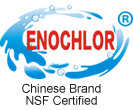10
2025
-
10
Exploring the Benefits of TCCA 90% from China in Water Treatment
Exploring the Benefits of TCCA 90% from China in Water Treatment Table of Contents 1. Introduction to TCCA 90% 2. What is TCCA and How Does it Work? 3. Advantages of Using TCCA 90% in Water Treatment 3.1 Efficacy in Disinfection 3.2 Cost-Effectiveness 3.3 Environmental Benefits 4. Applications of TCCA 90% in Water Treatment 4.1 Municipal Water System
Exploring the Benefits of TCCA 90% from China in Water Treatment
Table of Contents
- 1. Introduction to TCCA 90%
- 2. What is TCCA and How Does it Work?
- 3. Advantages of Using TCCA 90% in Water Treatment
- 4. Applications of TCCA 90% in Water Treatment
- 5. Safety Considerations When Using TCCA 90%
- 6. How to Use TCCA 90% Effectively
- 7. Frequently Asked Questions (FAQs)
- 8. Conclusion
1. Introduction to TCCA 90%
TCCA, or Trichloroisocyanuric Acid, is a chlorine-based compound primarily used for disinfecting water and other surfaces. One of the most concentrated forms of TCCA is **TCCA 90%**, sourced mainly from China. This powerful disinfectant is particularly sought after for its efficacy in treating water, ensuring it meets health and safety standards. In this article, we will delve into the benefits of using TCCA 90% in water treatment, discussing its advantages, applications, safety considerations, and effective usage methods.
2. What is TCCA and How Does it Work?
TCCA is a solid compound that contains approximately 90% available chlorine, making it an effective pool and water disinfectant. When TCCA is added to water, it releases chlorine, which is highly effective in killing bacteria, viruses, and other pathogens. This process not only disinfects but also helps to oxidize organic contaminants, resulting in cleaner, safer water.
The compound's unique structure allows it to remain stable, even under varying temperature and pH conditions, making it a preferred choice for many water treatment applications. TCCA is typically available in the form of tablets or granules, which can easily dissolve in water for effective application.
3. Advantages of Using TCCA 90% in Water Treatment
3.1 Efficacy in Disinfection
The foremost advantage of TCCA 90% is its **high efficacy** in disinfection. With over 90% available chlorine, TCCA can effectively eliminate harmful microorganisms, including bacteria, viruses, and algae, making it invaluable for maintaining clean and safe water. Its potent disinfectant properties ensure that water treatment facilities can deliver water that meets health standards, preventing waterborne diseases.
3.2 Cost-Effectiveness
In addition to its efficacy, TCCA 90% is recognized for its **cost-effectiveness**. Compared to other disinfecting agents, TCCA offers a higher concentration of active chlorine at a lower price point. This makes it an attractive option for municipalities and industries looking to minimize operational costs while maintaining water quality. The use of TCCA can lead to significant savings over time, especially for large-scale water treatment operations.
3.3 Environmental Benefits
TCCA is not only effective but also **environmentally friendly**. When properly used, it does not produce harmful byproducts that can contaminate water sources. Furthermore, TCCA's stability allows for longer shelf life and less frequent application, reducing the overall chemical footprint in the environment. This makes it a responsible choice for those looking to minimize their ecological impact while ensuring safe water.
4. Applications of TCCA 90% in Water Treatment
TCCA 90% is versatile and can be applied in various settings, making it suitable for multiple water treatment applications.
4.1 Municipal Water Systems
One of the primary applications of TCCA 90% is in **municipal water systems**. Water treatment plants utilize TCCA to ensure that the water supplied to communities is free from pathogens. Its effectiveness in large volumes makes it ideal for municipal applications, where maintaining public health is paramount.
4.2 Swimming Pools
TCCA is widely used in **swimming pools** for its ability to maintain hygiene and clarity. By regularly adding TCCA to pool water, operators can effectively manage bacterial growth and prevent algae blooms, ensuring a safe and enjoyable swimming experience for users.
4.3 Industrial Applications
In various **industrial applications**, TCCA serves as a powerful disinfectant and oxidizer. Industries such as food processing, pharmaceuticals, and textiles utilize TCCA to maintain sanitation standards, ensuring that products are safe for consumer use. Its efficiency in treating water for industrial processes contributes to product quality and safety.
5. Safety Considerations When Using TCCA 90%
While TCCA 90% offers numerous benefits, it is essential to handle it with care. Proper safety protocols should be implemented to mitigate potential health risks. Users should always wear personal protective equipment (PPE), including gloves and goggles, when handling TCCA.
Additionally, TCCA should be stored in a cool, dry place away from incompatible materials to prevent chemical reactions. It is crucial to follow manufacturer guidelines for dosing and application to ensure safety and effectiveness.
6. How to Use TCCA 90% Effectively
For optimal results, it is vital to use TCCA 90% according to established guidelines. Here are some key steps to ensure effective usage:
1. **Determine the Required Dosage**: The amount of TCCA needed will depend on the volume of water being treated and its existing quality. Conduct water tests to establish the current chlorine levels and adjust the dosage accordingly.
2. **Dissolve Before Application**: If using granules, it is often best to dissolve TCCA in water before adding it to the treatment system. This ensures even distribution and enhances its effectiveness.
3. **Monitor Water Quality**: Regularly test the water after applying TCCA to ensure that chlorine levels are within safe and effective ranges. Adjustments can be made as needed based on testing results.
4. **Follow Safety Protocols**: Always adhere to safety guidelines when handling and applying TCCA to minimize risks to health and safety.
7. Frequently Asked Questions (FAQs)
1. What is the shelf life of TCCA 90%?
TCCA 90% typically has a shelf life of 3-5 years when stored under proper conditions.
2. Can TCCA be used in drinking water treatment?
Yes, TCCA 90% is approved for treating drinking water and is effective in maintaining sanitary conditions.
3. How does TCCA compare to chlorine gas?
TCCA is safer to handle than chlorine gas, which is highly toxic and poses significant health risks. TCCA provides a stable alternative with a lower risk profile.
4. Is TCCA effective against all types of pathogens?
TCCA is effective against a wide range of bacteria, viruses, and algae, but it is always best to conduct water quality testing to determine specific needs.
5. What are the signs of TCCA overdose in water?
Signs of TCCA overdose include high chlorine levels, which can cause skin and eye irritation for swimmers, as well as potential taste and odor issues in drinking water.
8. Conclusion
In conclusion, TCCA 90% from China presents a multitude of benefits for water treatment applications. Its remarkable efficacy in disinfection, cost-effectiveness, and environmental advantages make it a preferred choice across various industries. By understanding how to use TCCA effectively and safely, municipalities, pool operators, and industrial facilities can ensure they provide safe, clean water to their communities and operations. With the right knowledge and practices, TCCA 90% can be a transformative solution in the quest for high-quality water treatment.
Previous
2023-04-23







